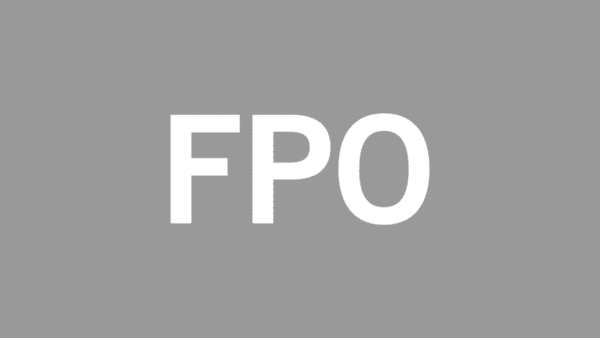
The heartbeat of the healthcare industry lies in the insights and experiences of its leaders. The most recent Sermo Barometer study from over 100 US-based healthcare leaders provides a comprehensive look at the pressing issues and transformative trends shaping the future of healthcare delivery. From grappling with the challenges of AI implementation to addressing staffing shortages and redefining organizational priorities, these leaders offer valuable perspectives on navigating the path forward.
Unlocking potential: the role of AI in future health systems
The integration of artificial intelligence (AI) and machine learning in healthcare systems is poised to play an increasingly pivotal role in the next few years. According to the latest findings from the Sermo Barometer study, a remarkable 91% of healthcare leaders hold the conviction that AI and machine learning will be integral components of their organizations’ success in five years or more.
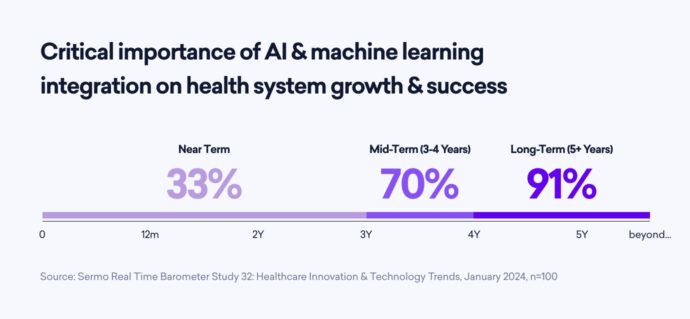
Despite this long-term perspective, the survey reveals a notable gap between aspiration and implementation, with only 25% of organizations having integrated AI technologies. While 45% of healthcare leaders actively monitor trends in AI, concerns persist among 21% regarding the potential missed opportunities in leveraging these emerging technologies.
Respondents envision significant strides in AI integration across various domains within the next five years. However, the current landscape presents disparities, as evidenced by the breakdown of AI integration in areas such as electronic health records management, predictive analytics, virtual health assistance, and medical imaging. These statistics underscore the importance of bridging the divide between current AI integration levels and forecasted advancements, signaling a pressing need for concerted efforts to realize the full potential of AI in healthcare systems.
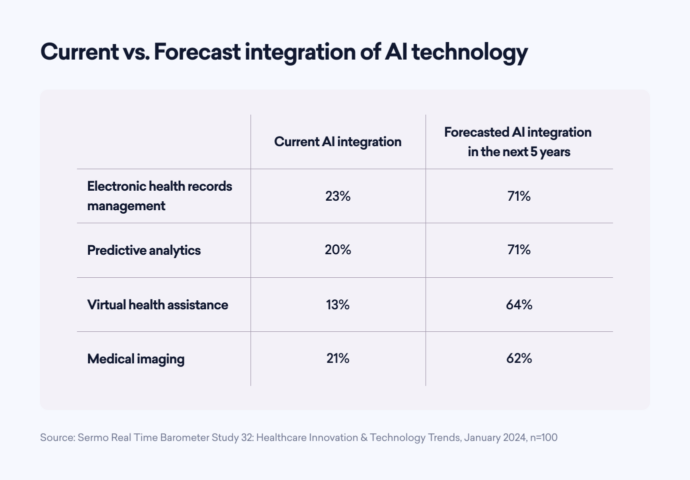
Understaffed and overworked: prescribing solutions for healthcare’s human resource dilemma
Staffing challenges continue to pose significant obstacles for healthcare organizations. A substantial 56% of respondents report difficulties in recruiting physicians and specialists. The impact of these shortages reverberates throughout healthcare organizations, leading to increased workloads, compromised patient care quality, and burnout among existing staff. Moreover, the inability to fill essential positions hampers operational efficiency and limits the capacity to meet patient demand, exacerbating healthcare disparities and hindering organizational growth.
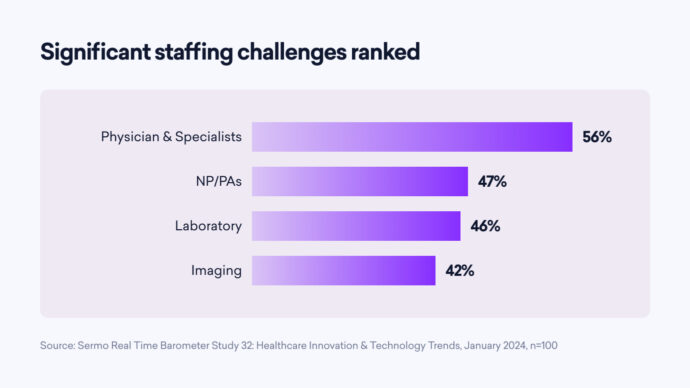
In response to these challenges, healthcare leaders are exploring various solutions and collaborations to bolster their workforce. A notable 44% of respondents identify collaborations with schools and training programs as a key retention strategy, emphasizing the importance of cultivating a pipeline of skilled professionals. Additionally, technology emerges as a potential tool in addressing staffing shortages, yet adoption remains relatively low, with only 17% of leaders expressing confidence in automating tasks to alleviate staffing challenges.
Despite the promise of technology, there is a recognition that human-centered approaches, such as education and training partnerships, are essential in nurturing a sustainable healthcare workforce for the future. As organizations navigate the complexities of staffing shortages, strategic collaborations, and a balanced approach to leveraging technology and human resources will be paramount in ensuring the delivery of high-quality patient care.
Beyond the bedside: shifting priorities and challenges in healthcare management
In 2024, healthcare organizations are bracing for significant shifts in care delivery models, with a strong emphasis on expanding outpatient, telehealth, and home-based services. The Sermo Barometer study reveals that an overwhelming 83% of respondents anticipate increased investment in outpatient care, followed closely by 75% in telehealth and 73% in home-based care. These anticipated shifts reflect a strategic move away from traditional inpatient care settings towards more flexible and patient-centric alternatives, aligning with evolving healthcare preferences and technological advancements.
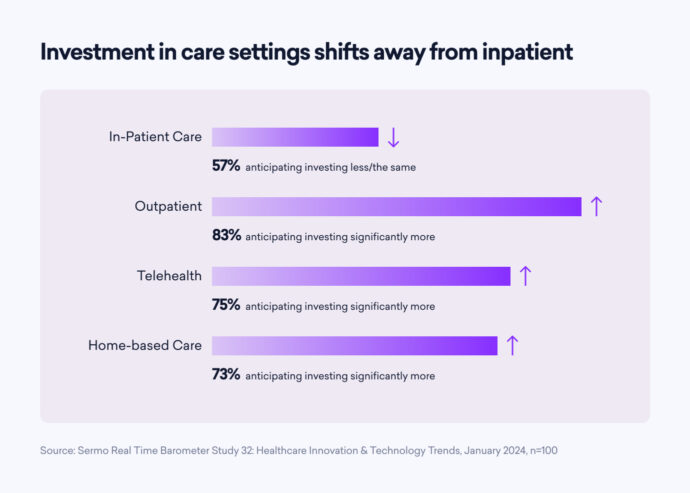
Amidst these anticipated shifts, organizational priorities are evolving to prioritize differentiation in a competitive landscape. Nearly half of healthcare leaders, 48%, highlight the importance of investing in services that set their organization apart from local competitors. However, challenges persist in system-wide technology implementation, with 31% of leaders feeling ill-equipped to train staff on new technologies and 42% struggling to demonstrate ROI on these investments.
Electronic unification presents another hurdle for healthcare organizations, as integration with existing healthcare systems remains a challenge for a third of leaders. Interoperability with other healthcare facilities and networks further complicates the landscape, underscoring the need for streamlined communication and data sharing protocols.
Despite these challenges, healthcare leaders remain committed to staying informed about emerging technologies, relying on networking with peers, vendor relationships, and industry events as primary sources of information. As organizations navigate the complexities of modern healthcare, a concerted effort to address these challenges and capitalize on opportunities will be essential for driving innovation and improving patient outcomes.
In a world where a single misguided assumption can yield far-reaching consequences, leave it to the experts. Sermo’s healthcare expert research panel, that is. Gain access to a global community of healthcare experts and decision-makers, empowering you to build robust strategies and stay ahead of the competition.
Ready to chat about how Sermo’s expert insight solutions can support your organization’s goals? Email us at business@sermo.com.
On behalf of Sermo, thank you for checking out our blog post on key trends and challenges faced by US healthcare leaders and decision makers.
At Sermo, access a global community of healthcare professionals and experts to fuel your strategic business decisions. Engaging with more than 1.5 million HCPs across 150 countries, we provide physicians and advanced-practice providers with a social platform that fosters impactful peer-to-peer collaboration & discussions about issues that are important to them and their patients. Sermo offers on-demand access to HCPs, payers, experts and Opinion Leaders via a suite of proprietary technology to provide business intelligence that benefits pharmaceutical, healthcare partners and the medical community at large.













